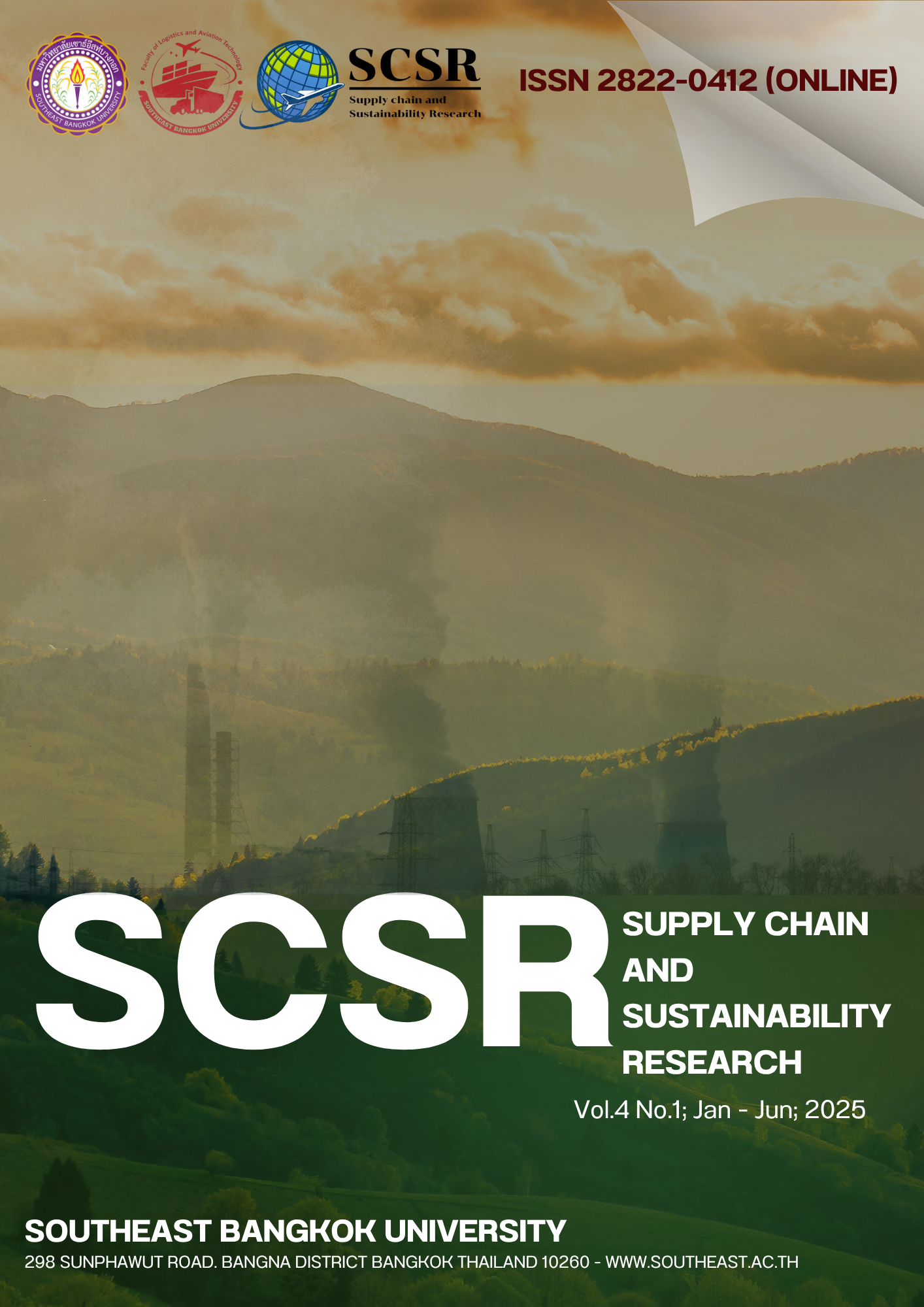A Study on the Sustainable Development of the Human Resource Supply Chain in China's Domestic Service Education Industry — From the Perspective of Artificial Intelligence
Main Article Content
บทคัดย่อ
This study aims to explore sustainable development strategies for the human resource supply chain within the domestic service education industry. With the continuous advancement of artificial intelligence (AI) technologies, the industry is undergoing unprecedented transformation. This research first analyzes the current status of the human resource supply chain in the domestic service education sector, identifying issues such as talent shortages and skill mismatches. Based on AI development trends, it proposes a series of innovative human resource supply chain management models to enhance the professional skills and service quality of domestic workers while promoting the sustainable development of the industry. The study further explores how to establish a more equitable and transparent recruitment and training mechanism, as well as how to utilize big data and AI to optimize human resource allocation, with the goal of achieving sustainability in the industry’s human resource supply chain. This research aspires to contribute meaningfully to the transformation and sustainable upgrading of China’s domestic service education industry.
Article Details

อนุญาตภายใต้เงื่อนไข Creative Commons Attribution-NonCommercial-NoDerivatives 4.0 International License.
บทความนี้ได้รับการเผยแพร่ภายใต้สัญญาอนุญาต Creative Commons Attribution-NonCommercial-NoDerivatives 4.0 International (CC BY-NC-ND 4.0) ซึ่งอนุญาตให้ผู้อื่นสามารถแชร์บทความได้โดยให้เครดิตผู้เขียนและห้ามนำไปใช้เพื่อการค้าหรือดัดแปลง หากต้องการใช้งานซ้ำในลักษณะอื่น ๆ หรือการเผยแพร่ซ้ำ จำเป็นต้องได้รับอนุญาตจากวารสารเอกสารอ้างอิง
Chen, L., & Wang, Y. (2021). Standardization Challenges in Domestic Service Education: A China Case Study. Journal of Vocational Education.
Gupta, S. (2020). Dynamic Workforce Planning in Service Industries. Springer.
Kim, H., et al. (2022). AI-Enhanced VR Training for Caregivers: Efficiency and Outcomes. IEEE Transactions on Learning Technologies.
International Labour Organization (ILO). (2020). Decent Work in Domestic Services: Global Trends and Policies.
National Development and Reform Commission of China. (2023). Action Plan for Quality Improvement and Expansion of Domestic Services Industry.
National Bureau of Statistics of China. (2023). China Statistical Yearbook 2022. Retrieved from http://www.stats.gov.cn/
Ministry of Commerce of the People’s Republic of China. (2023). China Domestic Service Industry Development White Paper 2023. http://www.mofcom.gov.cn/
State Council of the People’s Republic of China. (2019). Opinions on Promoting the Quality Improvement and Expansion of the Domestic Service Industry. http://www.gov.cn/zhengce/content/2019-06/26/content_5403141.htm
Ministry of Human Resources and Social Security of the People’s Republic of China. (2022). Statistical Bulletin on Human Resources and Social Security Development 2022. http://www.mohrss.gov.cn/
Ministry of Human Resources and Social Security of the People’s Republic of China. (2022). Employment Market Analysis Report (Q4 2022). Retrieved from http://www.mohrss.gov.cn
China Home Service Association. (2023). 2023 Statistical Report on China’s Domestic Service Industry. http://www.china-hsa.org/
China Home Service Association. (2023). Employment Trends in Domestic Service Sector: 2023 Dataset. http://www.china-hsa.org/data


